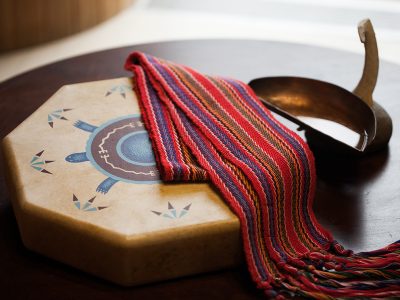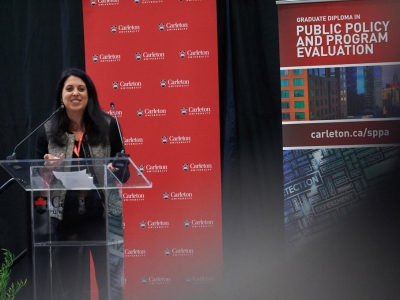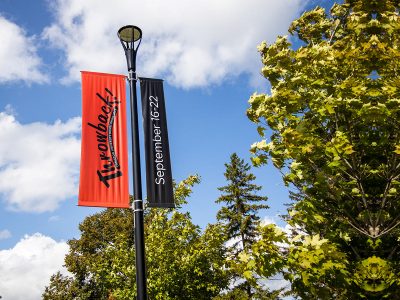By Matt Gergyek
In April, a friend of Doris Mah’s, a Carleton University Master of Political Management student, was shopping at a Safeway in North Burnaby, B.C. when she had a frightening experience with a man in the store aisle.
“He all of a sudden started this football posture, like he was hunching and running towards me, like he was trying to tackle me,” Mah’s friend Katharina Huang told CTV News. Huang dodged the man’s tackle and alerted store management, also filing a report with local police.
“This is five blocks away from my house where I normally shop on a weekly basis, and that’s when I realized this is really burning close to home,” says Mah, who immigrated to Canada as a teenager from Hong Kong.
“This woman could have been me, it could have been my daughters, it could have been my mom.”
Instances of anti-Asian racism have accelerated during the COVID-19 pandemic: Burnaby RCMP reports those hate crimes rose by 350 per cent in that city since 2019. Nearby Vancouver was recently labelled the “anti-Asian hate crime capital of North America” after seeing a 717 per cent increase in such incidents.
“I realized it was time to act,” says Mah.
While balancing classes and work with the NDP and New Westminster MP Peter Julian, Mah leveraged decades of experience in politics and community engagement to launch the Stand With Asians Coalition (SWAC) with a goal of uniting grassroots activists across Canada in the fight against anti-Asian hate.
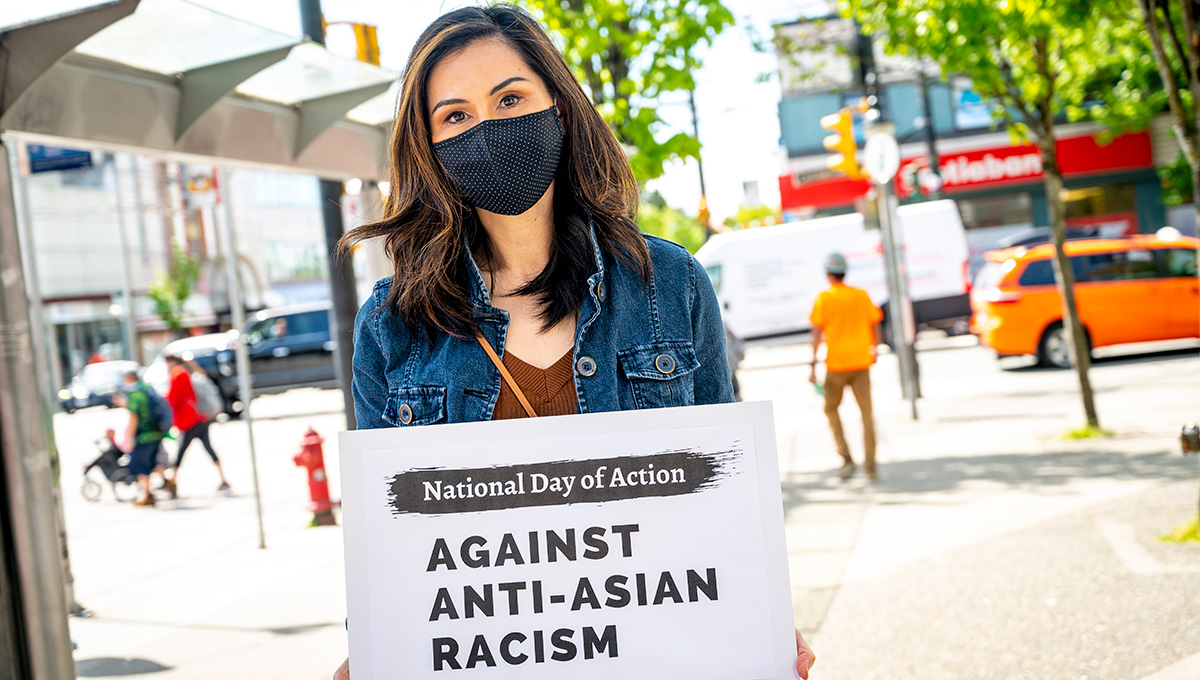
National Day of Action Against Anti-Asian Racism
Mah and SWAC urged Canadian cities to recognize May 10 as the National Day of Action Against Anti-Asian Racism. After finding success with Burnaby, Mah reached out to more than 1,000 municipalities, with about 30 cities—including Ottawa, Edmonton, Victoria, Vancouver and Toronto—committing to the cause. Altogether, the 30 cities represent about 8.3 million Canadians, says Mah.
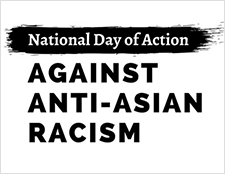 On May 10, dozens of small rallies took place across British Columbia in line with COVID-19 public health protocols, with people holding signs reading “Stand With Asians” and “Stop Bystander Silence.” On Zoom, MPs Matthew Green and Jenny Kwan spoke virtually in support, along with community activist Dupinder Saran and former MP Olivia Chow.
On May 10, dozens of small rallies took place across British Columbia in line with COVID-19 public health protocols, with people holding signs reading “Stand With Asians” and “Stop Bystander Silence.” On Zoom, MPs Matthew Green and Jenny Kwan spoke virtually in support, along with community activist Dupinder Saran and former MP Olivia Chow.
“I was just that tiny little spark that caught fire,” says Mah, who was overjoyed at the widespread support.
“There are more allies out there than you think. I’m a victim of racism and I didn’t know there were so many people standing behind me.”
In her work in politics, Mah sees herself as an important bridge between politicians on Parliament Hill and the ridings they represent, where she says there can be a “huge disconnect,” especially when it comes to communities with a large number of newcomers to Canada who might face language barriers.
“The MPM program (at Carleton) gives me the perspective to understand how Ottawa works and how I can best translate that system and those decisions into very common and simple language to communicate back to our constituents,” says Mah, who is set to graduate next year.
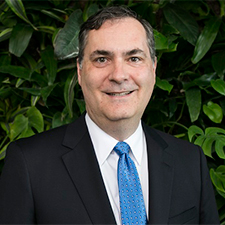
Prof. Stephen Azzi
“Doris has been phenomenal,” says program director Prof. Stephen Azzi.
“She came to Carleton with a lot of talent and quite a bit of experience, but recognized there was room for growth. She is exactly the kind of student we look for.”
While the coalition looks ahead to the 2022 National Day of Action, Mah says there is plenty of work for all Canadians to do, including challenging internal biases and calling out racist incidents they witness.
“There is a lot of potential to raise up grassroots activists in this country to hold their local municipalities accountable for their anti-racism policies,” says Mah. “This is just beginning. We can’t keep silent anymore.”
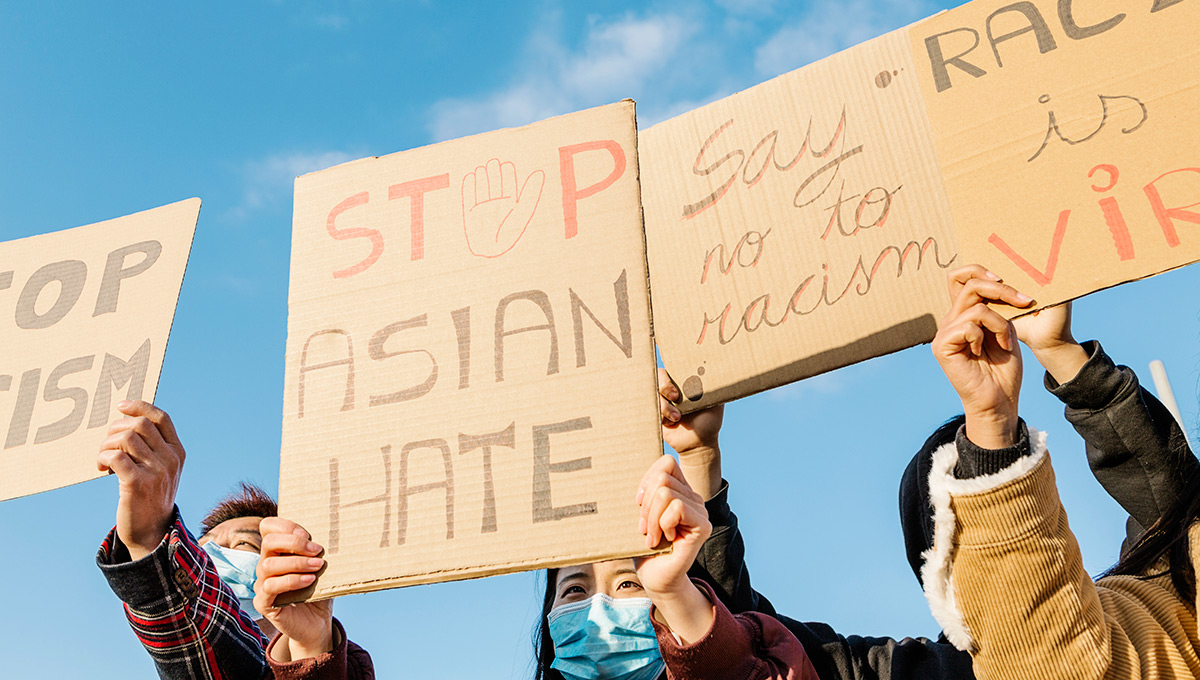
Wednesday, May 26, 2021 in Equity Services, Human Rights, Leadership, Political Management
Share: Twitter, Facebook
